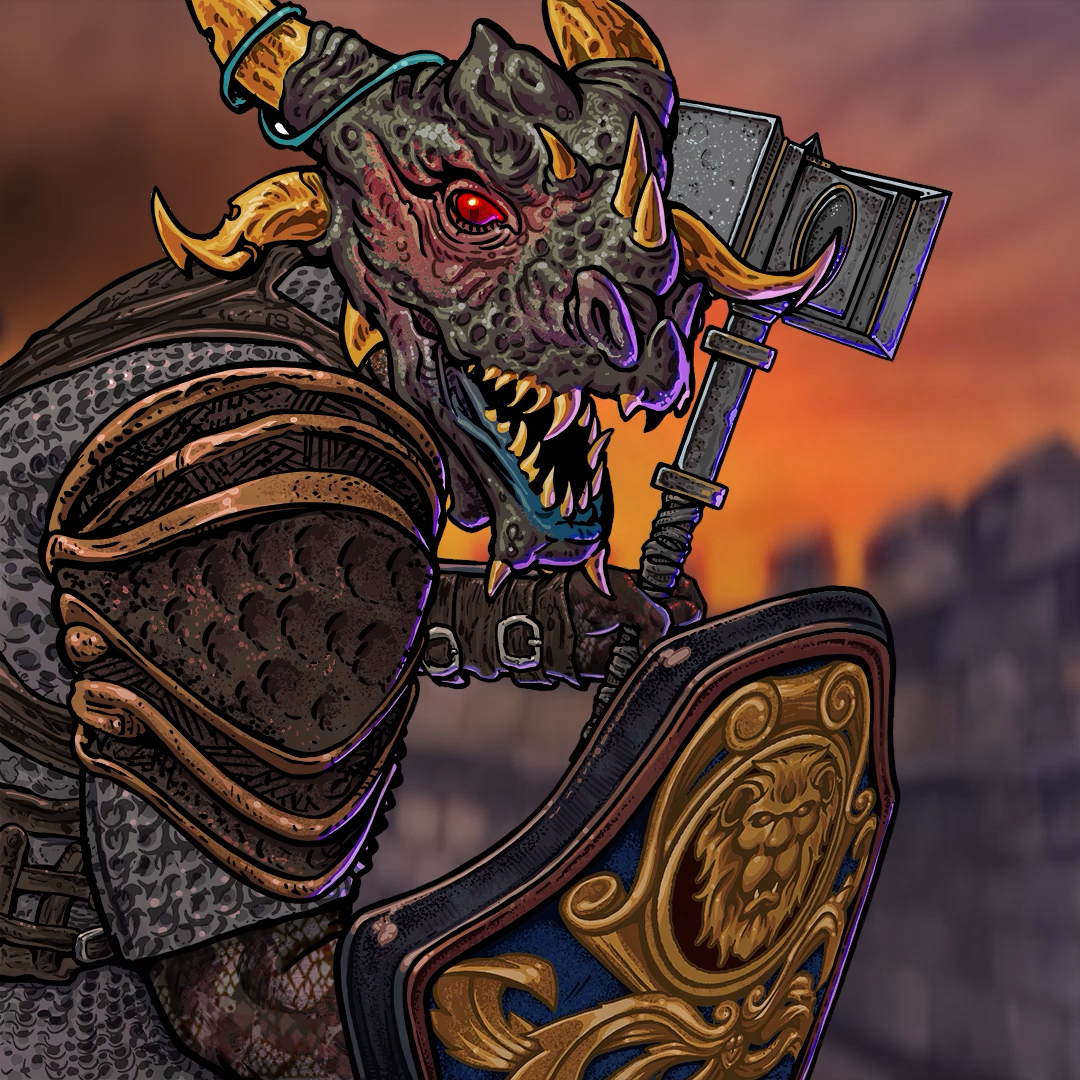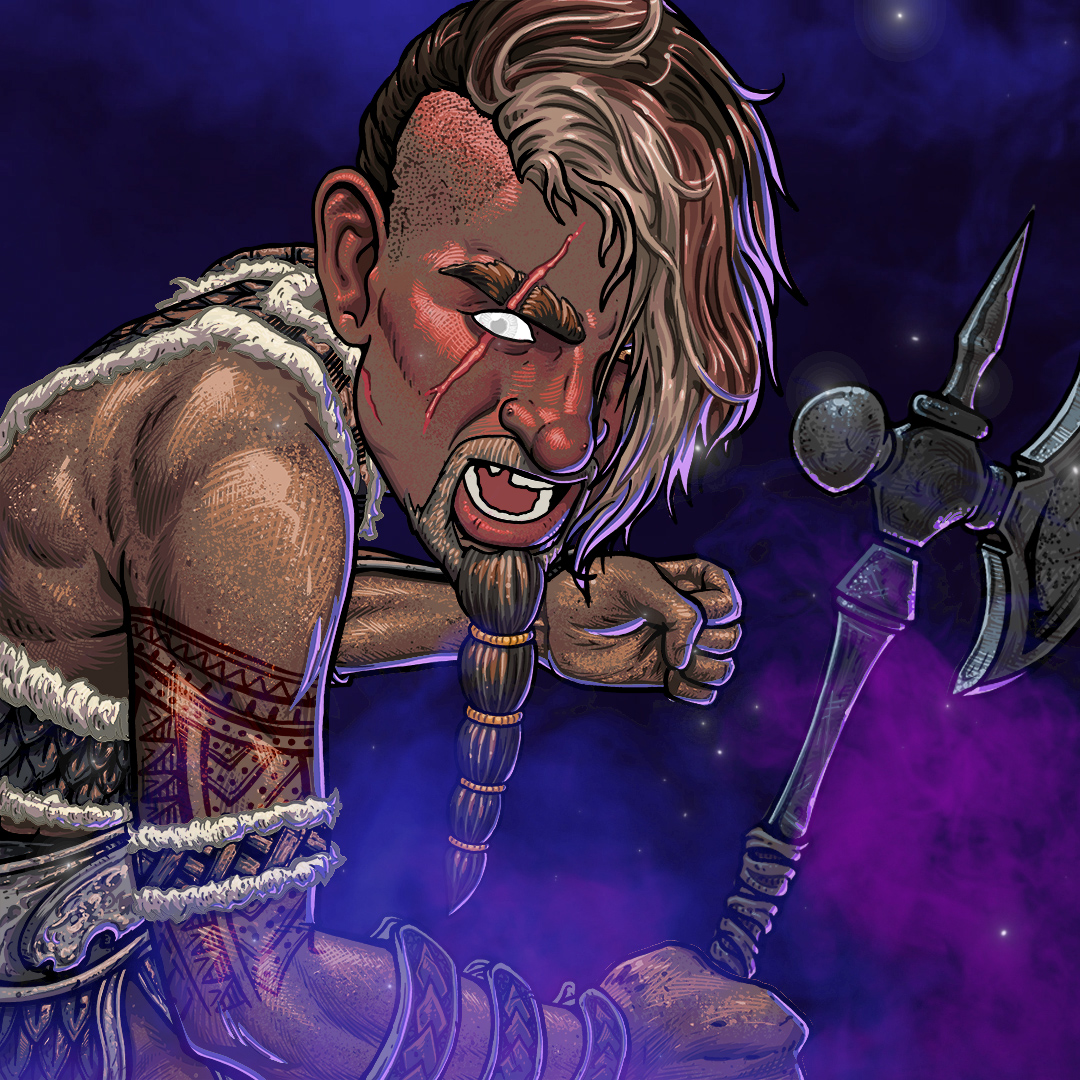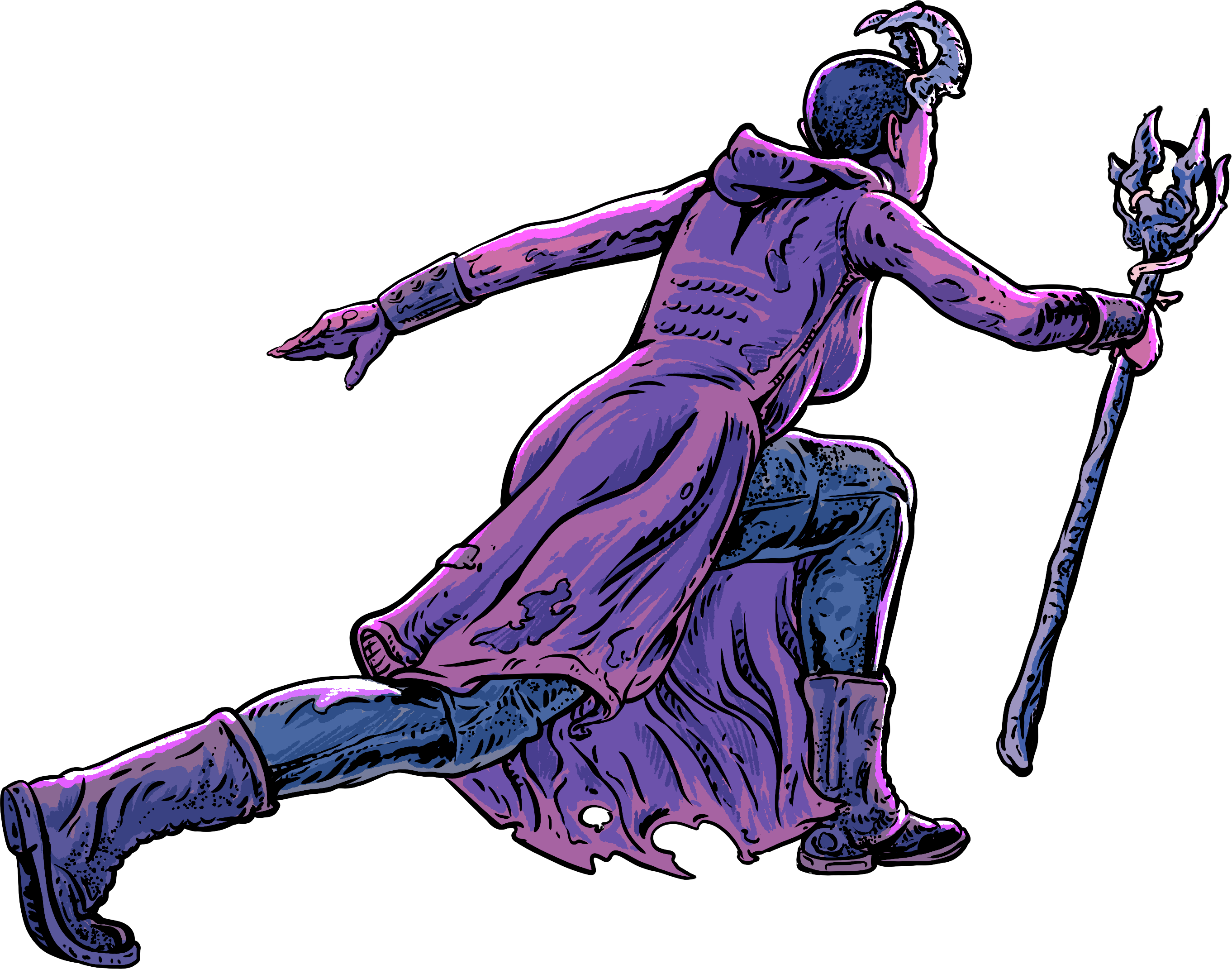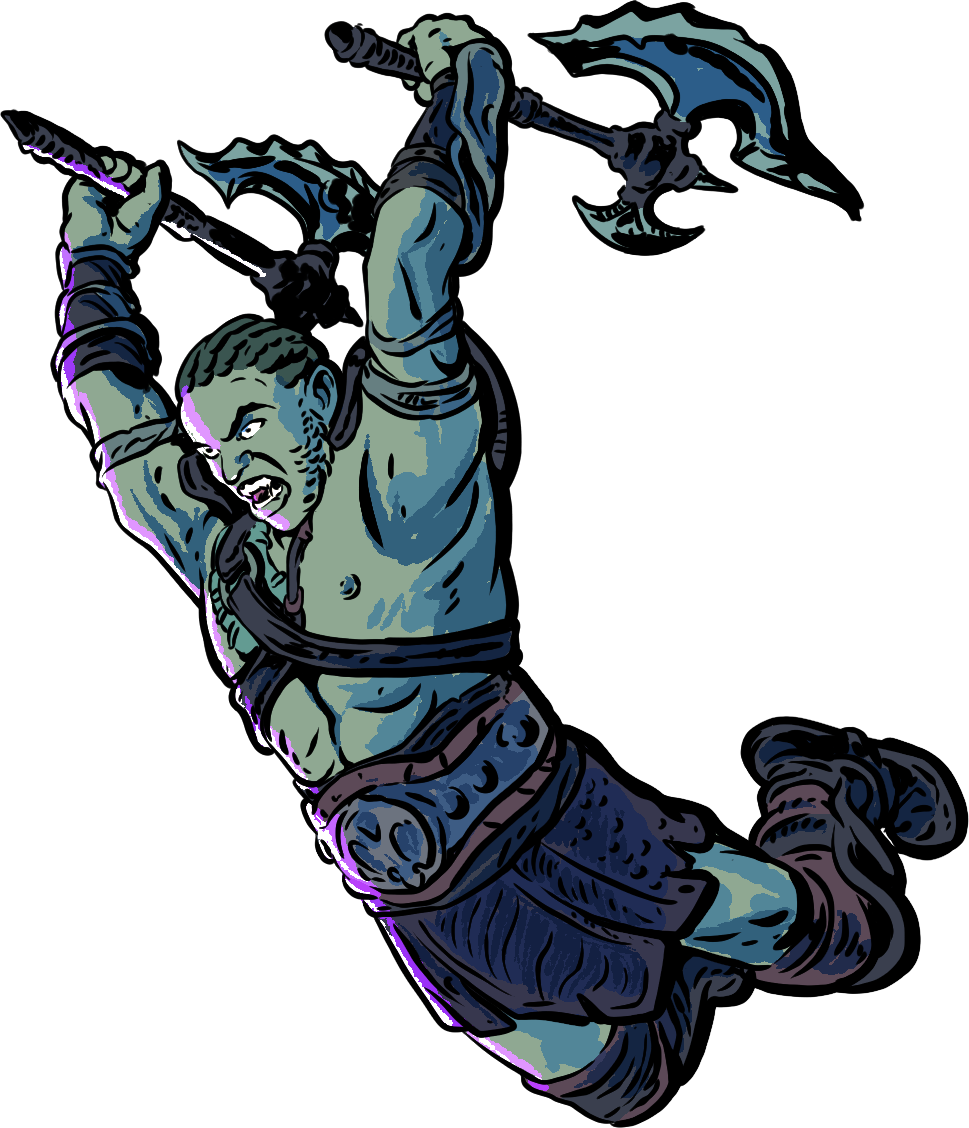Ancestries
Ancestry is the circumstance of one’s birth or genesis. Are you a dragonborn, with the blood of dragons coursing through your veins, or are you a member of the dwarven people, short, stout, and powerful of body or mind? The answer to this question is your ancestry.
Dragonborn
Homeland: Bef'Zuraak
Once the humanoid kin of the Dragon Lords of wicked Zuraak, these people were among the first to break the chains of their tyrannical masters and flee northward away from their former enslavers. Today, these folks are among the most influential people of the Moonstone Empire. Fierce adherents to the virtue of Honor, the dragonborn use swords, spells, and the gifts of their draconic heritages to protect the Empire from its greatest foes. Some of the greatest heroes, most valiant knights, and subtle mages are dragonborn.
Dwarves
Homeland: Sterck
Short of stature and stocky of frame, dwarves consider themselves the driving force of prosperity and progress in the Moonstone Empire. Dwarves pride themselves as hard workers and deep thinkers, and over the course of the Moonstone Empire’s history, their work and thought have enriched the realm. Spurred on by the virtue of Innovation, dwarves built the Imperial roads and the Moldering Wall, and their Oath of Rights and Responsibilities serves as the fundamental principles of Imperial Law. Over the centuries, dwarves have ranked as the Empire’s greatest warriors, priests, and alchemists.
Elves
Homeland: Zvin-Quinun (or Zin, as everyone else calls it)
Some see the elves as the strange spirit that hangs over the Moonstone Empire. Nearly everything about them is shrouded in mystery. At the same time, young elves can be found living in almost every corner of the Empire and often engage in adventuring life; upon reaching their 100th year, most return to their island homeland, never to return to the mainland. Tall, lithe, and often possessing an otherworldly grace, elves have often guided the Empire, usually through their ethereal virtue of Harmony, but never seen to be entirely part of the Empire, though their fingerprints are everywhere.
Gnomes
Homeland: Sterck
Though kin to the dwarves and often hard to tell apart from those folk at a distance, gnomes couldn’t be more different than their cousins. Slighter and often a tad shorter than dwarves, gnomes tend to be joyful, usually frivolous, and sometimes downright mischievous; the gnomish mind is like a bubbling brook running over the hard stone of the dwarves. Though many gnomes revere the virtue of Innovation, their ideas are often more fluid and some impractical, but their works often give that creative push that leads to greater leaps in progress…as long as things don’t explode or implode first.
Halflings
Homeland: Corinon
Often overlooked and discounted, halflings are the quiet and peaceful folk of the Moonstone Empire. Most halflings are perfectly happy spending their days in peaceful and joyous work and evening among family and friends with a pint or two along with a well-packed pipe. But one should never underestimate a halfling. They are strangely lucky, and once moved to adventure or threatened with peril, they can become some of the most steadfast and fearless heroes ever encountered. Most halflings revere the virtue of Enlightenment, but their heroes tend to gravitate toward the virtues of Honor and Courage.
Humans
Homeland: Corinon
If you ask a human, they’ll tell you that they are the heart of the Empire. While it’s true that the title of Emperor has always been held by humans (except the Untura and Zvin Tyrannies, of course), and their diplomats and merchants meddle everywhere, most other people of the Empire consider this typical human bluster. At their best, humans are brilliant and intensely caring; at their worst, coldhearted and shockingly ruthless. This may be why they devoutly adhere to the virtue of Enlightenment while teetering on the precipice of Ambition.
Orcs
Homeland: Thruv
Some consider the orcs the wild folk of the Empire, and there is some truth to that sentiment. This is partially due to their fierce tusked visage and robust frame, but their intensity runs even more profound. Orcs have their own look at things. They view every endeavor as a challenge to be conquered…utterly. While best exemplified by the abundance of famous orc hunters and warriors, they show the same ferocity in intellectual endeavors. Even their bard songs—often called orc core—are full of driving rhythms and heavy beats. Unsurprisingly most orcs adhere to the virtue of Courage.
Tieflings
Homeland: Throughout the Moonstone Empire
Of all the folk who populate the Moonstone Empire, tieflings are the newest and maybe the strangest. These strange, horned humanoids just appeared in a puff of sulfur around two centuries ago, in an event called the Brimstone Arrival. Each arrived as a young adult with few memories of their past existence and no idea of their purpose. Stranger still, when one of their numbers dies, another appears not far from the death scene. While some in the Empire still distrust these new peoples, most tieflings acclimate quickly, and many make their way into the world as adventurers.
Classes
Your class is your adventuring profession. Do you wade into the dangerous world in a suit of armor with shining weapons at the ready? You might be a fighter or a paladin. Do you control powerful arcane magic, blasting your enemy with powerful spells? You could be a wizard, warlock, sorcerer, or maybe even a bard.
Barbarians
Some warriors stalk the shadows or encase themselves in a steel cage, but barbarians wade into the fray with nothing more than their chosen weapon and rage. From the simple brawler acting as an enforcer to the city streets to the elemental brutes and shifters who take on primal forms enhancing their rage, barbarians wade into battle, leaving a trail of vanquished foes behind them. Larger than life and extremely hard to kill, barbarians always make an impression.
Bards
Quick with a tale or a song, bards might seem like your ordinary entertainer, but they are the practitioners of an ancient and diverse form of magic that mixes music and spells. Most wander the land looking for, or creating, stories that dazzle and amaze. Still, each eventually serves a college, which can be dedicated to something as simple as disseminating knowledge or as devious as hoarding information. Many more live a seemingly carefree life getting in and out of trouble quicker than a cord change of a jaunty jig.
Clerics
Across the Moonstone Empire, the clerics of the various virtues spread the benefit of their faith across the land. Those of the illuminated or light virtues—Courage, Enlightenment, Harmony, Honor, and Innovation—serve the Imperial people, granting their grace, succor, and healing where needed, while those of the dark virtues—Ambition, Judgment, Mischief, Retribution, and Tyranny—often attempt to lure others into a more self-serving mindset. Every cleric is empowered by the virtues with divine power and spells and looks to shape the world in the image of that virtue’s tenants, dogmas, and goals.
Druids
While clerics look to the sky and canon for guidance, druids are priests of a different sort and source. They gain their primal power by worshiping the world, its lands, flora and fauna, and the strange elementals that roam the wildlands. Gathering in groups called circles, druids often specialize in some aspect of the natural world, working for its benefit and protection. From the weird Circle of Decay to the more common and less creepy Circle of the Land, druids act as the protectors of the natural world.
Fighters
Even though the Moonstone Empire has been at peace for more than two centuries, there is always a need for warriors. From the knights who guard the Moldering Wall to the watch that keeps the peace amid city streets, fighters protect and defend the Empire’s way of life. Of course, there is a darker side to such a need. Brigands roam the countryside only for their own gain, and there are always those who seek violence as a remedy. Still, more often than not, fighters are lauded within the Empire, be they knights atop mighty steeds or lightly armored and charming swashbucklers.
Monks
Mystic and mindful warriors, monks, are the poets of battle. Often without weapons and the benefit of armor, a monk uses the mystic forces of ki to bolster both attack and defense and perform amazing, sometimes supernatural feats, within the fray. But monks practice more than just martial art. Each monk devotes themselves to a Way—and overarching take on combat and life. Whether a monk adheres to the Way of the Hand or the Way of Shadows, this philosophy is not only about martial practice but also one that guides action, thought, and spirit.
Paladins
While clerics serve the faithful, each of the light virtues—Courage, Enlightenment, Innovation, Harmony, and Honor—each sport an order of champions that protect the faith through feats of arms and divine magic. Each type of paladin takes an oath to their virtue and live by a strict code toward that virtue’s end. While many paladins are tied to orders serving various churches and temples, a number of them are paladin errant, roaming the wide world and offering their protection to the faithful and making the world safe for their particular virtue.
Rangers
In bardic songs, rangers are often portrayed as lone and romantic figures. They haunt the edges of epics, protecting the folks of the Empire from the savages of the wildlands. The reality is more complex. While rangers often serve as scouts, hunters, and protectors, others serve the powers of the wildlands, serving druidic circles, acting as wardens of the strange and powerful elemental brutes, and wielding powerful primal magic in their own right. Still more straddle the edges of the two worlds, not quite at home within either paradigm. All are the undisputed martial masters of the wilderness.
Rogues
From back alleyways and rooftops to forest strongholds and bandit caves, rogues make their way in the world by what most consider unscrupulous means. While it’s true that the world is full of rogues with hearts of gold—those who use their nefarious talents in the name of justice and for the protection of the downtrodden—most are just out for a bag of gold and their personal freedom. Often sneaky and fast with a blade, sometimes both charming and disarming, the best rogue’s work is only discovered well after you are lighter in coin and other treasures.
Sorcerers
Of the various forms of arcane magic, the sort practiced by sorcerers may be the most feared and mysterious. Often undisciplined and calling on either dangerous or obscure philosophies, sorcerers are arguably the most unpredictable of the arcane spellcasters. Many dabble with the ancient dragon magics of the dreaded Zuraak, while others tap into the violent powers of the Seethe. Others call on fey forces, indulge in esoterica, or derive their power from the moon and her handmaid. While some magics are tolerated in the Empire, especially if turned toward the common good, they are often closely watched.
Warlocks
The arcana of the warlock was brought to the face of Asuwa with the Brimstone Arrival of the tiefling. This powerful and flexible form of magic involves pacts with powerful beings. Some of these beings were brought by the tieflings, while others were awakened into the world with the tieflings’ arrival. Many in the Empire see warlock magic as just another sorcerous tradition, but subtle, and not so subtle, differences exist. A warlock pact involves a more direct conduit to arcane magic, granting surprising powers and the ability to regain magical power quickly at the cost of versatility.
Wizards
Of all the arcane spellcasting traditions, that of wizards is the most trusted and understood. Unlike the sorcerer and the warlock, wizards don’t rely on mysterious intermediaries. Instead, they treat arcana like a science, shaping its power through complex formulas and rituals using a powerful and ancient dialect of the Elvish language. It is consistent, sometimes time-consuming, but utterly reliable. Wizards also point out that while this magical path requires intense discipline, it is not tied to strange patrons or esoteric philosophies and is entirely and utterly controllable and reasonable. And most of the time, this assessment is correct.































































